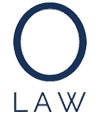Trade mark protection
What is a trade mark and who is responsible for all matters relating to trade mark protection?
According to Section 3(1) of the Trade Mark Law:
„All signs, in particular words including personal names, images, letters, numerals, sounds, three-dimensional designs including the shape of a product or its packaging as well as other get-ups including colours and colour combinations, which are capable of distinguishing the goods or services of one undertaking from those of others, may be protected as trade marks“.
The protection of intellectual property falls under the jurisdiction of the German Patent and Trade Mark Office (DPMA). The IP rights cover trade marks, designs, utility models and patents. The most popular application is for word and figurative marks.
Why is the registration of a trade mark and its protection so desirable?
Trade marks not only protect an idea, they also create trust. Trademarks evoke certain impulses and emotions in the consumer. The consumer associates certain characteristics and quality standards with a trade mark; in a way, it acquires its own and unmistakable identity. Consumers trust this character, so that their purchasing decisions in everyday life are influenced by it. A strong trade mark thus gives companies an advantage over their competitors.
Registration in the trade mark register kept by the DPMA gives the owner of the trade mark the exclusive right to use it. This means that the owner of the trade mark can dispose of the use of the trade mark alone, prohibit the use of a trade mark that could be confused with another trade mark or even pledge the rights. Trademarks can be bought and sold. The owner of the exclusive right of use may transfer trade mark rights to third parties or grant them for use. In the case of unlawfully marked goods, the trademark owner may cause them to be destroyed. Claims for damages as well as injunctive relief may be asserted against the infringement of trade mark rights.
Who can be the owner of a trade mark?
Trademarks can generally be registered by companies and private individuals. However, this is not the case for warranty and collective marks.
Classification of a trade mark – the list of goods and services
Trade marks cannot merely be registered, but specific services and goods for which your trade mark is to be protected must be classified. Without such a classification, there is a ground for refusal. The trade mark application can only be complete if a so-called list of goods and services is available. It is important to ensure that the classification is as specific as possible, otherwise inaccurate information will lead to significantly longer processing times. Please also note that you can no longer expand the list once an application has been made.
The internationally agreed classification database (eKDB) contains a catalogue of categories which makes classification much easier for you. The so-called Nice Classification contains 45 classes (e.g. vehicles; colours; material processing, etc.) to which you can precisely assign your goods and services. If categories are missing, you can make a proposal to the DPMA at any time.
The application – what are the registration requirements?
First, you should search the DPMA Register. All trade marks registered in Germany can be viewed in this trade mark register. Moreover, EU trade marks and internationally registered trade marks with protective effect for Germany are also entered in the register. Check whether your trade mark might infringe the rights of other trade mark proprietors or whether a trade mark with a similar or even identical scope exists. The DPMA does not carry out an examination upon filing, so you may run the risk that an opposition against the registration or cancellation of your trade mark may be filed subsequently.
Please also note absolute grounds for refusal. According to these, a trade mark can only be registered if there are no absolute grounds for refusal. These are, above all, lack of distinctiveness, product descriptiveness and general character, offences against morality or public order as well as trade marks with emblems of sovereignty. If your application is opposed by absolute grounds for refusal, it will first be objected to in writing – with an opportunity to comment – and, if necessary, rejected in part or in full by decision in subsequent proceedings.
You can then file an application online or in writing. A written request requires the use of the application form of the DPMA. The DPMAdirektWeb and DPMAdirektPro web applications are available online. After filing, you will receive an acknowledgement of receipt with an official file number and the application will be available for public inspection in the DPMAregister. Payment of the fees for the application procedure must be made within three months from filing the application. The amount of the application fee is 300.00 euros. For electronic filing, a fee of 290.00 euros is due.
Protective effect, term of protection and obligation to use – what do you have to bear in mind?
Trade mark protection usually comes about through registration. However, it is also possible that trade mark protection can come into being through long-lasting and intensive use of a sign in business transactions or through general awareness (notoriety). The scope of protection is determined by the goods and services which are to be protected for your trade mark. The term of protection is ten years from the filing date and can be extended at will upon payment of appropriate fees.
For all registered goods and services there is also a compulsory use obligation, i.e. you are obliged to use the goods and services, otherwise you jeopardise the scope of protection of your trade mark.
Opposition and cancellation
Owners of an earlier trade mark can file an opposition against it after registration. In the case of internationally registered or EU trade marks, for example, an opposition can be filed in the event of likelihood of confusion. This must be filed within a period of three months after publication and for a fee of 120.00 euros. If the opposition is successful, the trade mark will be cancelled from the register.
Furthermore, cancellation is also possible due to invalidity, revocation or surrender. Invalidity exists in particular if there are absolute grounds for refusal. If a trade mark has not been used within five years, it lapses and is consequently cancelled. Furthermore, an action for cancellation by the trade mark owner is also possible before ordinary courts.
How is the trade mark protected abroad?
Trademarks can be applied for directly in desired countries. In addition, it is possible to apply for registration of your trade mark as an EU trade mark by means of proceedings at the European Union Intellectual Property Office (EUIPO) in Alicante (Spain). The protective effect of your designated goods and services of the trade mark then extends uniformly throughout the entire territory of the European Union. The application can be filed directly with the EUIPO.
It should be noted, however, that national and international trade marks may file oppositions if they enjoy trade mark protection. In the event of a justified opposition, registration would be refused for the entire territory of the Union.
Written by Linda Naomi Henschel
O.Law is a modern and dynamic law firm working in cooperation with highly motivated, professionals offering legal advice in the heart of Dusseldorf. We are characterized by our cooperation with a tax advisor and a network of lawyers in Eastern Europe.
O.Law supports in all legal requests regarding commercial law, focusing on our international cooperation. In view of the intensity of German-Turkish trade relations and the importance of them, we established a Turkey Desk.
Solutions that are efficient and economically sensible, with creative approaches are defining O.Law’s hallmarks. O.Law offers legal services in German, Turkish and English and can support double culturally. To speak a common language is important to us.
O.Law – International Law Firm
Attorney at Law Hülya Oruç, LL.M.
Goethestr. 30
40237 Düsseldorf
+ 49 211 976 358 -19
info@olaw.eu
www.olaw.eu
O.Law is a law firm based in Düsseldorf. Working for entrepreneurs worldwide, making their dreams come true.
We speak your language
Written by Linda Naomi Henschel


